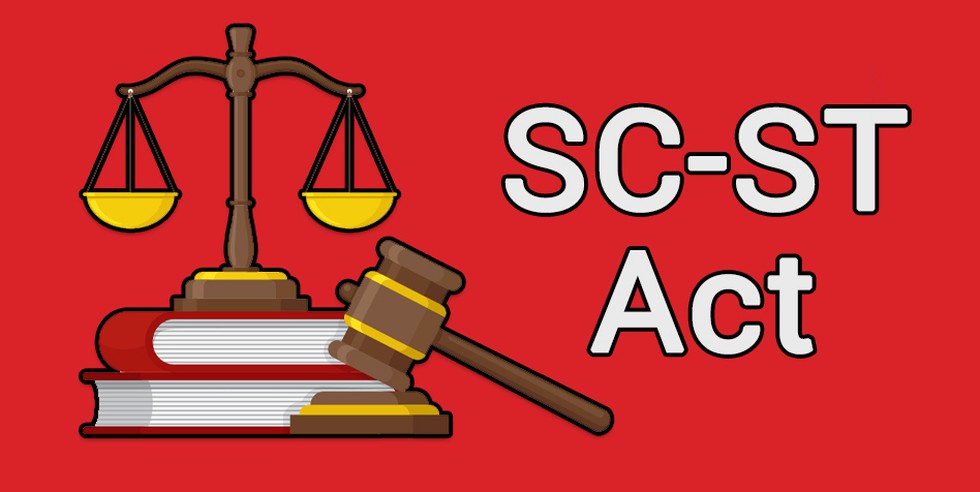About Scheduled Castes and Scheduled Tribes (Prevention of Atrocities) Act, 1989:
- It is an act to prevent the commission of offences of atrocities against the members of the Scheduled Castes (SCs) and the Scheduled Tribes (STs) by persons other than SCs and STs.
- It provides for punishment for offences of atrocities committed against SCs and STs.
- It authorizes the Central Government to frame rules for carrying out the purpose of the Act.
- The Act is implemented by the respective State Governments and Union Territory Administrations, which are provided due central assistance.
- Offences:
- There are 37 offencesincluded in the Act that involve patterns of behaviour inflicting criminal offences and breaking the self-respect and esteem of the SCs and STs community.
- Among these are the denial of economic, democratic, and social rights, as well as the exploitation and abuse of the legal system.
- All offenceslisted in the Act are cognizable.
- An investigation of offence committed under the Act cannot be investigated by an officer not below the rank ofDeputy Superintendent of Police (DSP).
- The investigation should be completed within 30 days, and the report should be sent directly to the director of the state police.
- The act clearly states about the constitution of special courts for hearing cases on atrocities against SCs and STs.
- For the purpose of providing for a speedy trial, the State Government shall, with the concurrence of the Chief Justice of the High Court, establish in each district a Court of Session to be a Special Courtexclusively to try the offences under this Act.
- The exclusive Special Courts try offences under this Act on a day-to-day basis.
- For every Special Court, the State Governments specify a Public Prosecutor or appoint an advocate who has been in practice as an advocate for not less than seven years, as aSpecial Public Prosecutor for the purpose of conducting cases in that Court.
- The minimumpunishment in most cases is six months of imprisonment, while the maximum is a five years sentence and with fine.
- In some cases, the minimum is enhanced to one yearwhile the maximum goes up to life imprisonment or even a death sentence.
- Section 4 of the act deals with punishment for neglect of duties by a public servant.According to this section, if a public servant, who is not a member of the SC or ST, deliberately neglects his duties, which he should perform under the Act, he is liable for punishment with imprisonment up to six months.
- According to the Scheduled Castes and Scheduled Tribes (Prevention of Atrocities) Rules, 1995, the District Magistrateor the Sub-Divisional Magistrate, or any other Executive Magistrate, shall make arrangements for providing immediate relief in cash or in kind, or both, to the victims of atrocity, their family members, and dependents.
- Such immediate reliefs also include food, water, clothing, shelter, medical aid, transport facilities, and other essential items necessary for human beings.
